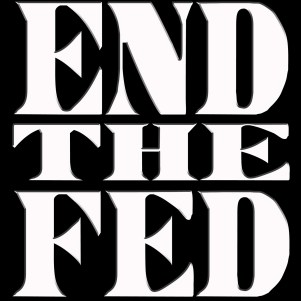Is the U.S. cannabis industry collapsing? A new report from Whitney Economics answers yes. While the Biden administration kicks the rescheduling of cannabis down the road for the 2024 election, only 24% of U.S. cannabis businesses are profitable.
Whitney Economics is a consulting and research firm that compiles cannabis economic data into annual reports. They published their findings in their second annual Cannabis Operator Sentiment and Business Conditions.
U.S. Cannabis is Collapsing
According to the survey report, yes, it appears the U.S. cannabis industry is collapsing. Only 24.4% of cannabis operators in the U.S. are profitable. This is down 42% from the year before.
Little-to-no access to banking, rising supply chain costs, and lower cannabis prices all contribute to this collapse. The report suggests at least seven quarters of below-average growth.
But is the U.S. cannabis industry collapsing beyond repair? That depends on what state you find yourself in.
The report found that government regulators determine if you succeed or fail. Rules and requirements that are too burdensome and capital-intensive negatively affect cannabis businesses.
The report highlights that markets and business conditions have changed, but regulators’ policies have not.
However, instead of moving toward freer markets, 70% of the respondents want regulators to cap licences. While this would limit competition and thus make the existing operators profitable, it does so at the expense of consumer choice.
According to the report, U.S. cannabis is collapsing because legislatures and regulatory policies focus on generating tax revenue instead of creating a viable and sustainable cannabis industry.
“Operators continue to be impacted by taxes, strict regulatory rules, and lack of access to capital. Only one quarter (24.4%) of respondents reported profitable operations.”
Whitney Economics Q4’22 Cannabis Operator Sentiment & Business Conditions Survey Report
3 Ways to Reverse the U.S. Cannabis Industry Collapse
If the U.S. cannabis industry collapses, how can we reverse it?
The Whitney Economics report cites taxes, regulations and lack of capital as the three major obstacles negatively impacting the industry. While conventional wisdom may suggest tweaks here and there, we recommend a more radical approach.
After all, if a report said the American dairy industry or the automobile industry collapsed by 42% in one year, the President would be on TV declaring a national emergency.
But cannabis? Crickets.
Fortunately, the solutions we present here would benefit all industries if implemented. Not just cannabis.
1. Taxes
Cut taxes across the board and gut entire categories. States charge an “excise tax” on cannabis. Another name for excise taxes is sin taxes because that’s essentially the idea.
Some actions are morally wrong but legally permissible. Ergo, the government charges an additional “excise” tax.
But this idea is incompatible with individual liberty. As well, who decides what is moral and immoral? We’re not talking about hiring hitmen on the dark web. We’re talking about a benign, nontoxic herb.
Millions use it for medicinal purposes. Almost everyone uses it for therapeutic purposes; otherwise, why consume it?
Cutting taxes would help all businesses, not just the collapsing U.S. cannabis industry. As well, lower taxes means less money going into government coffers. And that’s always a good thing.
2. Regulatory Rules
A market economy without regulation is impossible. The question is: who is doing the regulating?
Entrepreneurs regulate each other by competing for consumers. Consumers regulate entrepreneurs by patronizing different competitors.
The only way to profit – absent government privileges – is by exchanging goods and services with people.
But not every business owner is honest. Some will cut corners at others’ expense. And disputes will inevitably arise. That’s the argument for regulation.
But these large government regulatory bureaucracies are an invention of the 20th century.
Before, Western civilization relied on English common law. For centuries we’ve developed rules and regulations from actual cases and settlements.
Politicians didn’t preemptively create new rules and then empower expensive bureaucracies to enforce them.
In this way, regulations were procedural and adapted to change. A common law legal system complements free markets. A government-regulated market creates the conditions for regulatory capture and, in effect, economic fascism.
3. Access to Capital
Would the U.S. cannabis industry collapse if government regulators didn’t make arbitrary demands based on their definitions of “public health and safety?”
Possibly, but access to capital goes beyond the regulatory structure.
For over a century, the Federal Reserve has been dedicated to transferring capital from the middle class to the richest of the rich.
The Fed creates asset price bubbles by manipulating the money supply and interest rates. This benefits the wealthy who own assets and harms individuals on low and fixed incomes.
When the bubbles burst, as seen in 2008, the subsequent economic recession disproportionately affects the middle and lower classes. Meanwhile, the big banks (who cause the problem) get a taxpayer-funded bailout.
Americans can end this over-a-century-long con job by ending the Fed and legalizing private, competitive currencies. And thereby reversing the collapsing U.S. cannabis industry.
- SEO Powered Content & PR Distribution. Get Amplified Today.
- PlatoData.Network Vertical Generative Ai. Empower Yourself. Access Here.
- PlatoAiStream. Web3 Intelligence. Knowledge Amplified. Access Here.
- PlatoESG. Automotive / EVs, Carbon, CleanTech, Energy, Environment, Solar, Waste Management. Access Here.
- BlockOffsets. Modernizing Environmental Offset Ownership. Access Here.
- Source: https://cannabislifenetwork.com/is-the-u-s-cannabis-industry-collapsing/







